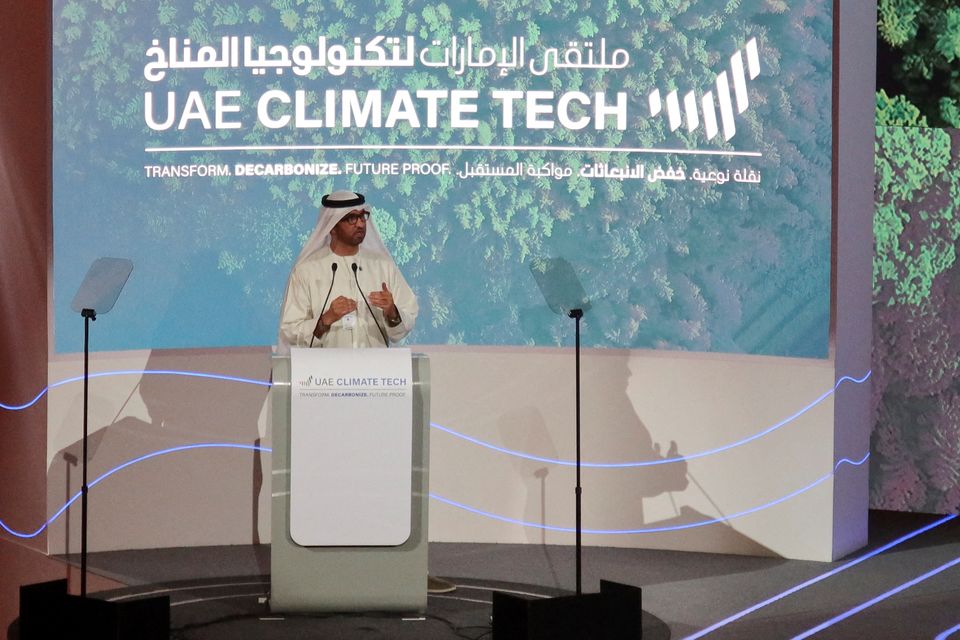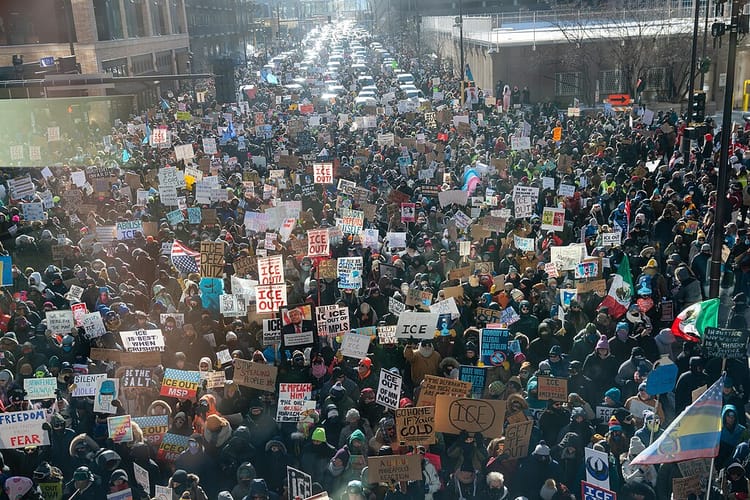Can COP Still Matter?

The UN climate talks in Bonn this week, a preliminary round of negotiations before global leaders meet in Abu Dhabi in November for COP28, were yet another indicator that this is shaping up to be the most useless COP yet. Hosted by a petro state, with the national oil company's president also operating as the COP head, COP 28 already has some folks dismissing it as a joke. The UAE has been working with multiple PR agencies for the past few years to pave the way for its COP and to paint Sultan Al Jaber, head of the Abu Dhabi National Oil Company (ADNOC) and of COP28, as the perfect guy to bring the fossil fuel industry to the table to negotiate a global energy transition. A few weeks ago, Bill Gates and Mike Bloomberg lined up behind this narrative during Abu Dhabi's Climate and Technology Summit. Getting U.S. tech and business giants like Gates and Bloomberg is key to a PR strategy that's attempting to paint Al Jaber as more of a cleantech CEO than the sultan in charge of the national oil company. Bloomberg has continued to loudly advocate on Al Jaber's behalf (a favor to his pal Richard Edelman, perhaps?) while dismissing anyone who doesn't think oil tycoons are our best bet for global climate action as naive and childish. What Bloomberg's "all hands on deck" message ignores, of course, is...um, all of history, and particulary all of COP's history.
As I have written about many times now, fossil fuel interests having a seat at the table is nothing new when it comes to UN climate negotiations. They have had a powerful seat at the table since the 1992 Rio Earth Summit, thanks in large part to our old friend E. Bruce Harrison, who brought the Global Climate Coalition to Rio for the summit and pushed the idea that voluntary corporate action was the best way to tackle the problem. And they've been an active participant not only at every single COP, but also as contributing and lead authors on every report the Intergovernmental Panel on Climate Change has ever put out. If anything, it is Bloomberg who is naive here if he thinks approaching this problem the way we always have is going to deliver a different result than the one we've gotten to date. That's true not only of the COP process, but also of the persistent behavior of petro state leaders. Time and again we have seen what petro states advocate for during international climate discussions: more carbon capture and hydrogen, less talk of ramping down fossil fuel production.
None of which is to say that a terrible COP28 is a foregone conclusion or that the process can't be salvaged. The campaign to require COP attendees to disclose their affiliation on their badges was successful, so a least fossil fuel lobbyists won't fly under the radar this year. Given the real dangers of on-the-ground protest in the UAE, a lot of the action to try to mitigate Al Jaber's and the fossil fuel industry's influence over the proceedings is likely to play out online and in the media. Al Jaber's various press agents (which include Edelman and APCO Worldwide) are focused particularly on the business press, where they emphasize his role as the head of Masdar, the country's renewable energy company and futuristic smart city, and downplay his role as the head of ADNOC, which is being rebranded as an "energy company" (aren't they all). But stories calling this image in question are starting to come fast and furious; the flaks have their work cut out for them.
Tamping down on fossil fuel influence is all well and good but let's name the elephant in the room here: isn't it time to kick these guys out of climate negotiations altogether at this point? How about if they put all the money they spend on influencing COP into the loss and damages fund instead? That can be the way they participate, and it would actually go a long way toward improving the negotiations on multiple fronts. Early reactions from Bonn indicate that, once again, COP is likely to pit Global North vs Global South countries, with the latter still left wondering if the climate adaptation funding promised to them for years will ever materialize. “Trust is what greases the wheels of effective negotiations, and unfortunately in Bonn that was severely lacking," David Waskow, International Climate Director at World Resources Institute said in a statement about the negotiations. "Progress was underwhelming on nearly every front, with one main culprit: money. Developing countries are increasingly frustrated that funds promised to implement their climate plans is not materializing. Despite finance not being on the official agenda, it clearly cast a shadow over the negotiations."
The fossil fuel industry could make those funds materialize easily thanks to record profits over the past year, and in so doing contribute more productively to the negotiations than they ever have. The industry is free to host its own event where they talk about carbon capture and enhanced oil recovery and plastic recycling...in fact they do every year. It's called CERAWeek and Al Jaber is a popular guy there too.
Hi there, thanks for reading! If you're already a paid subscriber, thanks for your support. If you're not and you want to be, just smash the button below to upgrade. If it's not in your budget right now, sharing the newsletter with friends is also a great way to support our work.
This Week's Climate Must-Reads
- Strategies of Denial - Grey Anderson argues in Sidecar that "viewed from the halls of power, the anti-China orientation of US industrial policy is not an unfortunate by-product of the green ‘transition’, but its motivating purpose."
- Mottley in Paris, Modi in DC - The Polycrisis newsletter from Phenomenal World is how I keep up on what's happening in the climate finance space. This week's edition gives a preview of what we might see come out of the Summit for a New Global Financing Pact in Paris next week. Meanwhile, Joe Biden and Narendra Modi will instead be in Washington, likely announcing a North-South deal enabling General Electric fighter jet engines to be co-manufactured in India by Hindustan Aeronautics. Kate MacKenzie and Tim Sahay break down what it all means, especially in the broader geopolitical context of the United States' renewed industrial strategy and its geoeconomic implications.
- Study Compares Gas Stove Pollution to Secondhand Cigarette Smoke - As the House passed its industry-crafted "Save Our Gas Stoves" bill, yet another study highlighted the health impacts of indoor gas. This time researchers compared the health effects of gas stoves to secondhand smoke, finding that a single gas burner on high or an oven set to 350 degrees Fahrenheit for 45 minutes raised benzene levels above the upper range of indoor concentrations seen in secondhand tobacco smoke. (Hiroko Tabuchi, for The New York Times)
- ‘I’m a prisoner in my own home,’ asthma sufferer, 15, tells landmark US climate trial - The Held v Montana case finally went to trial this week in Helena, Montana. The case invokes Montana's state constitution, which grants its citizens the right to a healthy environment. Dharna Noor was in Montana covering it for The Guardian all week!
- The Right-Wing War on Clean Air - As wildfire smoke enveloped the east coast last week, a familiar face appeared to tell Fox News viewers that there's nothing unhealthy about inhaling it. For The Intercept, Amy Westervelt dug into Steve Milloy's long-standing war on clean air and how it dovetails with his war on climate action.
+ A Non-Climate Must-Read: A Star Reporter's Break With Reality — This fascinating profile of longtime 60 Minutes' correspondent Lara Logan's devolution into Moms for Liberty conspiracy theorist is a sad and scary look at how and why disinformation is so effective. (By Elaina Plott Calabro for The Atlantic)





